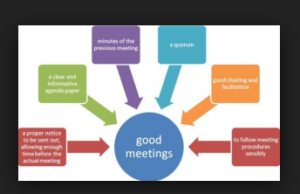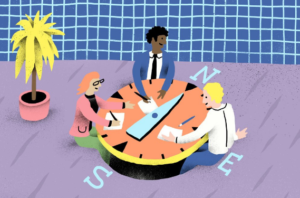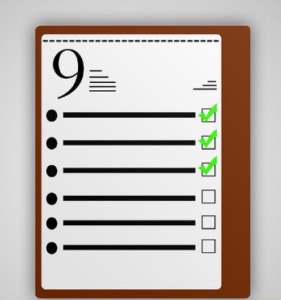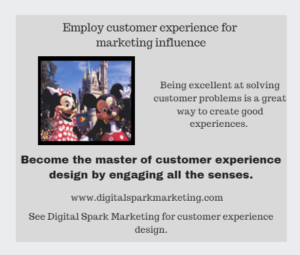Pablo Picasso: I am always doing that which I cannot do so that I may learn how to do it. Can you think of anything more meaningful to time management than to run an effective meeting?

We can’t … and have spent many a meeting wasting precious time. We have spent years of experience to define the critical elements of running a meeting.
There have been many, many articles written on how to run an effective meeting. We will not repeat the essence of those articles here.
Through more than 35 years of business experience, I have identified these critical keys to an effective, focused meeting. We believe these keys are as follows:
Decision-maker is required.
Every meeting must have one clear decision maker. If there’s no decision maker — or no decision to be made … the meeting shouldn’t happen.
Number of attendees
No more than ten people should attend … desirably fewer.
Limit the number of people attending the meeting. The purpose of meetings is to make decisions and get work done. For the most part, meetings are not the best way to simply share information (exception: meetings are helpful to share sensitive information)

Attendee input
Every person should give input … otherwise, they shouldn’t be there.
Effective meeting … making decisions
No decision should ever wait for a meeting. If a meeting has to happen before a decision should be made … then the meeting should be scheduled immediately.
Define and manage to an agenda written in advance

Vague intentions to have a discussion on a topic rarely end on a productive note. If you are just getting started with agendas, start with a point from the list of topics to be discussed and make sure that material is provided to attendees at least one day before the meeting. For better results, provide background information on the agenda so that everyone attending has the same information.
What about when you are asked to attend a meeting without an agenda? Ask, “Can you please send me an agenda for the meeting so that I can prepare?”
Effective meeting … manage the meeting time
Watching the clock is important for an effective meeting. When nobody takes charge of managing time, it is easy to become careless and unfocused. Remember – when people attend a meeting, they cannot do anything else. Make the time count!
Starting the meeting on time and ending on time (or a few minutes early!) will quickly enhance your reputation as an organized person. If you are running a large or complex meeting, consider asking a colleague to serve as timekeeper. If managing meetings to the clock are challenging for you, the parking lot habit (see below) will be a game changer!
Manage off topic discussions
The first time I saw a meeting facilitator use a parking lot, I was impressed. This helpful device performs two useful functions. First, it serves to keep the meeting focused on the stated agenda. Second, the parking lot acknowledges important points raised by attendees.
Note: The Parking Lot habit must be combined with the Follow Up habit if you wish to be truly effective. Otherwise, you are likely to gain a reputation for simply making a show of acknowledging other people.
Here are a few steps to use the parking lot concept.
At the beginning of the meeting, explain you expect everyone to focus their discussions on the agenda. Further, explain that this rule will help the meeting stay productive and end on time.
Keep the meeting agenda document in front of you as a guide.
Go through each agenda item
Monitor and contribute to the discussion
When someone raises an interesting point that does not relate to the agenda, say the following: “Thank you for that point, Tim. However, Microsoft Visual Studio tools go beyond the purpose of this meeting. Let me write down that item in the parking lot, and I will include it in the meeting notes that I will send out by email so we can explore that point at the right time.”
Take notes
Taking notes in meetings is an essential skill, yet I am often struck by how often people forget to do it. The key reason to take notes in a meeting is to record any questions or assignments that have been directed to you. Let’s look at how attendees and organizers can act on notes.
Take notes in a paper notebook rather than using a computer, tablet or another device. Even if you have fantastic abilities to focus on the meeting, other people may assume that you are “catching up on email” instead of paying attention to the meeting if you take notes on a computer.
If you plan to send minutes or a summary of the meeting to attendees, say this at the start of the meeting and explain what you will include. Sending out meeting minutes, even a few paragraphs or bullet points is a best practice.
These rules sound like common sense, but they often disappear as companies get larger and leadership less decisive.
What do you think about these key elements of a meeting? Have any pointers to add? Have any experiences to share with this community?
